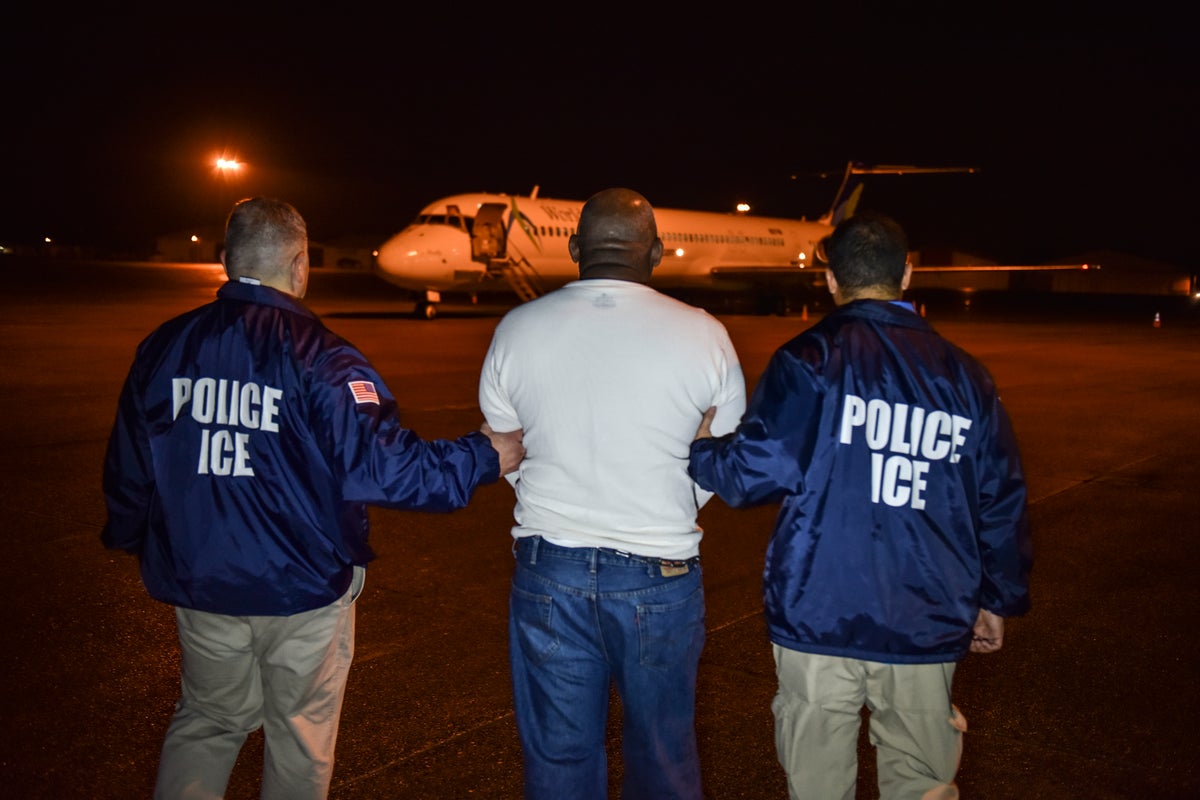ICE’s acting director Todd Lyons has bluntly compared the movement of people to packages.
“We need to get better at treating this like a business, where this mass deportation operation is something like you would see and say, like, Amazon trying to get your Prime delivery within 24 hours,” Lyons told a law enforcement conference in Phoenix earlier this year.
Since before the Trump administration, the ICE field office in New Orleans — which is responsible for removal operations in Alabama, Arkansas, Louisiana, Mississippi and Tennessee — was modeling operations after shipping giant FedEx and its “spoke-hub” model.
Lyons, who has helmed ICE since March, addressed his now-viral remarks about treating immigrants like packages in an interview the following month.
"The key part that got left out of that statement was, I said, they deal with boxes, we deal with human beings, which is totally different,” he told Boston 25 News.
ICE “should be run like a corporation”, he told the outlet.
"We need to be better about removing those individuals who have been lawfully ordered out of the country in a safe, efficient manner,” Lyons continued. “We can’t trade innovation and efficiency for how we treat the people in our custody.”
Fourteen of the 20 largest ICE detention centers in the U.S. are in Louisiana, Mississippi and Texas, a network that immigrant advocates have labelled “deportation alley.” The jails — most of which are operated by private prison companies — hold thousands of people each year.
More than 7,000 people are currently jailed in Louisiana’s immigration detention centers while Texas facilities are holding more than 12,000. More than 56,000 people are in ICE detention across the country.
But Louisiana is home to the nation’s only ICE detention center with a tarmac. The facility in Alexandria has become the nation’s busiest deportation airport with 1,200 flights to other U.S. detention centers and more than 200 planes leaving the country since Trump took office.
Louisiana locks up more people per capita than any other U.S. state, in a country with one of the highest incarceration rates on the planet.
Most incarcerated people in Louisiana are in local jails, and the state pays sheriffs a daily rate per inmate, creating what civil rights groups fear is a cruel pay-to-play system that incentivizes locking people up.



So history repeats itself - you can read here how people like Lyons think and justify their atrocities: Hannah Arendt: Eichmann in Jerusalem: A Report on the Banality of Evil (1963).
Unfortunately, still very relevant today.
Fascinating book suggestion, thanks.